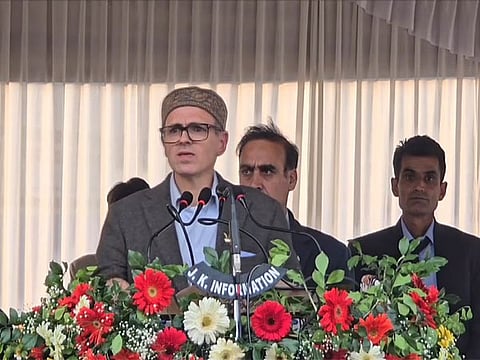

SRINAGAR: As the Valley faces lengthy power cuts in the winter months, Jammu and Kashmir Chief Minister Omar Abdullah on Tuesday said the Indus Water Treaty (IWT) between India and Pakistan is creating hurdles in J&K’s power generation.
“The Indus Water Treaty (IWT) restricts the ability on river-rich Jammu and Kashmir to harness its huge hydel power potential primarily due to storage constraints,” Omar said while speaking during the conference of Power Ministers of States & UT in New Delhi today.
Omar, who is also the Power Minister of J&K, highlighted the limiting clauses in the Indus Water Treaty that restrict Jammu and Kashmir from realising its full hydel potential by only permitting run-of-the-river projects.
He said hydel power is J&K’s only viable energy source. “The region is compelled to rely on power imports from other States, which adversely impacts its economy.”
As per the Indus Water Treaty (IWT) signed between India and Pakistan and brokered by World in September 1960, three Eastern rivers -- Ravi, Sutlej, and Beas -- are allocated to India for unrestricted use while three Western rivers --- Jhelum, Chenab, and Indus --- are allocated to Pakistan. India is required to allow the waters of these rivers to flow into Pakistan, with some exceptions.
India is permitted to build hydroelectric projects on the western rivers but they must be "run-of-the-river" projects.
“As a fallout of Indus Water Treaty barriers, J&K pays a heavy price in peak winter months when power generation hits low, creating hardships for its people,” Omar said.
In winter months, the Valley faces lengthy power cuts. Even at this time, many areas of Kashmir are facing unscheduled and lengthy power cuts.
Omar said to address this (power generation) issue, J&K would require special compensation from the Government of India, including viability gap funding and equity assistance, to harness its untapped hydro-energy potential. “The support would not only help in meeting the region’s energy needs but also contribute to national clean energy goals.”
He also sought the Centre’s intervention in holding Central Public Sector Undertakings like PESL and National Thermal Power Corporation accountable in fast-tracking loss reduction works under the premier Revamped Distribution Sector Scheme in J&K.
He requested the Power Ministry to consider gap funding for the implementation of electric infra works under RDSS.
Union Minister for Power, Manohar Lal, chaired the conference. Union Minister of State for Power, Shripad Yesso Naik, was also present at the Conference which was attended by Power Ministers and senior Government functionaries from all over the country.